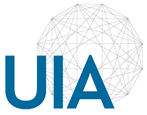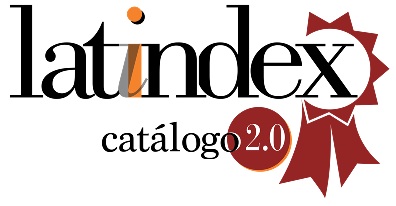Sustainable and responsible labelling and consumption of milk: the consumer’s perception
Keywords:
responsibility, sustainability, dairy sector, labelling, responsible consumptionAbstract
This paper aims to know the situation of the responsible consumption of milk in Spain and the consumers’ perception about labels indicating the responsible and/or sustainable character of a product. Different seals and labels used at national level have been analysed and a prospective survey was carried out on a sample of 200 individuals. Main results suggest the existence of some level of disinformation, which leads to confusion among consumers´, which accept seals and labels with misleading content as valid, as they are unaware of the existence of official certifications and their implications. Therefore, the most obvious conclusion is that companies and institutions in the dairy sector must work to improve their communication actions and, specifically, they must carry out actions to train and inform consumers about the content of the different labels and badges. This effort would not be in vain, as these same consumers are already demanding useful and truthful information about the sustainability of their products and processes.
Downloads
References
AENOR (2020). Bienestar animal de explotaciones ganaderas y mataderos. AENOR. https://www.aenor. com/certificacion/alimentacion/bienestar-explotaciones-ganaderas-mataderos. Consultado a fecha 17 mayo 2020.
Bermejo, R. (2014). Del desarrollo sostenible según Brundtland a la sostenibilidad como biomimesis. Bilbao: Hegoa.
Campo Galego (2019). Galega 100%: el sello de garantía de la leche de Galicia. Campo Galego. Xornal dixital agrario. 09/06/2019. https://www.campogalego.com/es/galega-100-el-sello-de-garantia-de-la-leche-de-galicia/. Consultado a fecha 17 mayo 2020.
Carrero Bosch, I., Valor Martínez, C., y Rosa Durán, J. M. (2010). La relación del consumidor con las etiquetas sociales y medioambientales. Estudio diagnóstico para orientar la definición de políticas públicas y la acción empresarial. Compromiso RSE. https://www.compromisorse.com/upload/ estudios/000/89/EstudioEtiquetado.pdf. Consultado a fecha 15 mayo 2020.
Central Lechera Asturiana (2018). Central Lechera Asturiana presenta el sello “Garantía Ganadera”. Central Lechera Asturiana. https://www.centrallecheraasturiana.es/es/apoyamos-al-sector-primario-y-el-mundo-rural/. Consultado a fecha 17 mayo 2020.
CLUN (2017). Certificaciones de Calidad. Cooperativas Lácteas Unidas. https://clun.es/calidad/ certificaciones-de-calidad/. Consultado a fecha 17 mayo 2020.
CMMAD (1987). Informe de la Comisión Mundial sobre el Medio Ambiente y el Desarrollo “Nuestro futuro común” (Informe Brundtland). Naciones Unidas. https://undocs.org/es/A/42/427. Consultado a fecha 15 mayo 2020.
Comisión Europea (2002). Communication from the Commission concerning Corporate Social Responsibility: a business contribution to Sustainable Development (COM/2002/0347 final). https:// eur-lex.europa.eu/legal-content/EN/TXT/?uri=celex:52002DC0347. Consultado a fecha 15 mayo 2020.
Comisión Europea (2006). Communication from the Commission to the European Parliament, the Council and the European Economic and Social Committee. Implementing the partnertship for growth and jobs: making Europe a pole of excellence on Corporate Social Responsibility (COM/2006/136 final). https://eur-lex.europa.eu/LexUriServ/LexUriServ.do?uri=COM:2006:0136:FIN:en:PDF. Consultado a fecha 15 mayo 2020.
Comisión Europea (2010). Reglamento (UE) Nº 605/2010 de la Comisión, de 2 de julio de 2010, por el que se establecen las condiciones sanitarias y zoosanitarias, así como los requisitos de certificación veterinaria, para la introducción en la Unión Europea de leche cruda y productos lácteos destinados al consumo humano. https://eur-lex.europa.eu/eli/reg/2010/605/oj. Consultado a fecha 15 mayo 2020.
Dalmau, A., & Montejano, S. (2018). Claves del bienestar animal en el ganado vacuno. AENOR. Revista de la Evaluación de la Conformidad, 341, 28-31. https://revista.aenor.com/341/claves-del-bienestar-animal-en-el-ganado-vacuno.html
D’Souza, C., Taghian, M., & Lamb, P. (2006). An empirical study on the influence of environmental labels on consumers. Corporate Communications: an International Journal, 11(2), 162‐173. https://doi.org/10.1108/13563280610661697
De la Cuesta, M., & Valor, C. (2003). Responsabilidad social de la empresa: concepto, medición y desarrollo en España. Boletín Económico de ICE, 2755, 7-19. https://dialnet.unirioja.es/servlet/articulo?codigo=301530
Drexhage, J., & Murphy, D. (2010). Sustainable Development: from Brundtland to Rio 2012. Background Paper for consideration by the High Level Panel on Global Sustainability at its first meeting, 19 September 2010. United Nations: New York.
Drichoutis, A. C., Lazaridis, P., & Nayga, R. (2006). Consumers’ use of nutritional labels: a review of research studies and issues. Academy of Marketing Science Review, 9, 1-22. https://www.researchgate.net/publication/228364127_Consumers'_use_of_nutritional_labels_A_review_of_research_studies_and_issues
Dueñas Ocampo, S., Perdomo-Ortiz, J., & Villa Castaño, L. E. (2014). El concepto de consumo socialmente responsable y su medición. Una revisión de la literatura. Estudios Gerenciales: Journal of Management and Economics for Iberoamerica, 30(132), 287-300. https://doi.org/10.1016/j.estger.2014.01.022
Failla, C. (2008). The Scuppie HandbookTM. A practical guide to living well while doing good. Scuppie. http://www.scuppie.com/. Consultado a fecha 15 mayo 2020.
FENIL (2020). PLS, un distintivo de origen, calidad y sostenibilidad. Federación Nacional de Industrias Lácteas. http://fenil.org/productos-lacteos-sostenibles/. Consultado a fecha 17 mayo 2020.
Galega 100% (2019). Que é? Galega 100%. http://www.galega100x100.gal/quees.html. Consultado a fecha 17 mayo 2020.
Galicia Calidade (2019a). Quiénes somos. Galicia Calidade. https://www.galiciacalidade.gal/ES/content/ Quienes-somos. Consultado a fecha 17 mayo 2020.
Galicia Calidade (2019b). Ventajas. Galicia Calidade. https://www.galiciacalidade.gal/ES/content/ Ventajas. Consultado a fecha 17 mayo 2020.
García, S. (2018). De pastoreo, 100% natural... Esto es lo que hay detrás de las nuevas etiquetas de la leche. El País, 27/09/2018. https://elpais.com/elpais/2018/09/26/album/1537968041_252050.html#. Consultado a fecha 17 mayo 2020.
Hartlieb, S., & Jones, B. (2009). Humanising business through ethical labelling: progress and paradoxes in the UK. Journal of Business Ethics, 88(3), 583‐600. https://www.jstor.org/stable/40295020
Junta de Castilla y León (2012). Nace nuestra leche ‘Tierra de Sabor’, que garantiza un precio justo para los ganaderos de Castilla y León. Junta de Castilla y León. http://comunicacion.jcyl.es/web/jcyl/ Comunicacion/es/Plantilla100Detalle/1281372051501/_/1284243477034/Comunicacion. Consultado a fecha 17 mayo 2020.
Larsa (2020). El pastoreo, una forma de vida. Leite Larsa. https://leitelarsa.es/2015_pages/leche-de-pastoreo-larsa.php. Consultado a fecha 17 mayo 2020.
Llopis Goig, R. (2009). Consumo responsable y globalización reflexiva: Un estudio referido al comercio justo en España. Revista Española del Tercer Sector, 11, 145-165. https://dialnet.unirioja.es/servlet/articulo?codigo=2971678
MAGRAMA (2013). Productos Lácteos Sostenibles. Ministerio de Agricultura Pesca y Alimentación. https://www.mapa.gob.es/es/megustalaleche/productos-lacteos-sostenibles/. Consultado a fecha 17 mayo 2020.
Montejano, S. (2018). Bienestar animal y leche de pastoreo: garantías para el consumidor. AENOR. Revista de la Evaluación de la Conformidad, 341, 16-19. https://www.aenor.com/Certificacion_Documentos/Art%C3%ADculos/16feb18.pdf
Moreno, H. J. (2014). La influencia del precio y las estrategias de comunicación visual basadas en simbología cultural sobre la preferencia de marcas ecológicas y consumo sostenible. Revista Escuela de Administración de Negocios, 77, 168-182. https://doi.org/10.21158/01208160.n77.2014.822
Nielsen (2018). Sustainable shoppers buy the change they wish to see in the world. Nielsen. https:// www.nielsen.com/ssa/en/insights/report/2018/sustainable-shoppers-buy-the-change-they-wish-to-see-in-the-world/. Consultado a fecha 15 mayo 2020.
Nielsen (2019). Finding success through sustainability. Nielsen. https://www.nielsen.com/au/en/insights/ article/2019/finding-success-through-sustainability-aus/. Consultado a fecha 15 mayo 2020.
ONU (2015): Objetivos de Desarrollo Sostenible. Organización de las Naciones Unidas. https:// www.un.org/sustainabledevelopment/es/objetivos-de-desarrollo-sostenible/. Consultado a fecha 15 mayo 2020.
Parlamento Europeo (2006). Informe sobre la responsabilidad social de las empresas: una nueva asociación (2006/2133/(INI)). https://www.europarl.europa.eu/sides/getDoc.do?pubRef=-//EP //TEXT+REPORT+A6-2006-0471+0+DOC+XML+V0//ES. Consultado a fecha 15 mayo 2020.
Parlamento Europeo (2019). Agricultura ecológica en la UE: nuevas reglas más estrictas (infografía). Parlamento Europeo. https://www.europarl.europa.eu/news/es/headlines/society/ 20180404STO00909/agricultura-ecologica-en-la-ue-nuevas-reglas-mas-estrictas-infografia. Consultado a fecha 15 mayo 2020.
Santaona, E. (2019). Leche de bienestar animal, pastoreo o ecológica: ¿cuál es mejor? eldiario.es, 27/03/2019. https://www.eldiario.es/consumoclaro/beber/Leche-pastoreo-bienestar-animal-ecologica_0_877713018.html. Consultado a fecha 17 mayo 2020.
Villaécija, R. (2019). Ofensiva contra el fraude de los falsos productos bio. El Mundo, 02/09/2019. https://www.elmundo.es/economia/ahorro-y-consumo/2019/08/31/5d6948f2fdddf fa2218b465c.html. Consultado a fecha 17 mayo 2020.
Webb, D. J., Mohr, L. A., & Harris, K. A. (2008). A re‐examination of socially responsible consumption and its measurement. Journal of Business Research, 61(2), 91-98. https://psycnet.apa.org/doi/10.1016/j.jbusres.2007.05.007
Weinstein, M. P., Turner, R. E., & Ibáñez, C. (2013). The global sustainability transition: it is more than changing light bulbs. Sustainability: Science, Practice and Policy, 9(1), 4-15. https://doi.org/10.1080/15487733.2013.11908103
Zadek, S., Lingayah, S., & Forstater, M. (1998). Social labels: tools for ethical trade. Brussels: New Economics Foundation.
Downloads
Published
How to Cite
Issue
Section
License
Copyright (c) 2020 Creative Commons License CC-BY-NC-ND

This work is licensed under a Creative Commons Attribution-NonCommercial-NoDerivatives 4.0 International License.










































